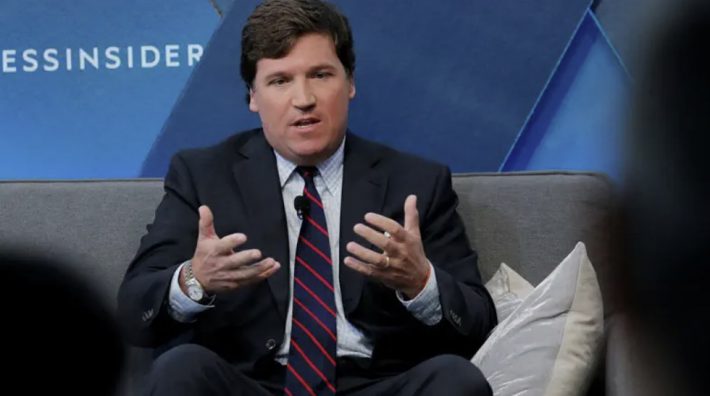JK Rowling’s Harry Potter offers an eerily apt metaphor for modern conspiracy thinking: those too afraid to confront real threats often invent imaginary ones. Blaming Jews and Israel isn’t rooted in fact—but in cowardice, convenience, and a desperate need for false simplicity.
In Harry Potter and the Order of the Phoenix, J.K. Rowling brilliantly captures the psychological mechanics of conspiracy thinking. Minister Fudge and Dolores Umbridge can’t stomach the terrifying truth of Voldemort’s return—so they invent a safer fiction, scapegoating Harry Potter and Albus Dumbledore. Their cowardice in the face of evil enables it to grow unchecked.
That same psychological instinct drives the persistent antisemitic undercurrent in conspiracy theories today. Conspiracists don’t want solutions—they want someone safe to blame. And who safer to blame than the Jews, a tiny global minority with a long, tragic history of being the world’s scapegoats?
We saw this play out when media figures like Tucker Carlson and Megyn Kelly echoed baseless claims that the Mossad orchestrated Jeffrey Epstein’s criminal enterprise. Why not blame Russia or China—genuine adversaries of the U.S.? Because those enemies are frightening. They retaliate. Israel, on the other hand, is a steadfast ally. It values the U.S., poses no threat to Americans, and won’t respond with missiles or fatwas. For the coward, Israel is the perfect boogeyman.
In this coward’s calculus, Iran—with its real plots, threats, and assassinations—is too dangerous to name. Cartoonists like those of Charlie Hebdo or courageous voices like Ayaan Hirsi Ali are hunted for speaking the truth. Salman Rushdie lost an eye for writing a novel. Real threats extract real costs. So the coward chooses fake ones.
That’s why critics like Carlson lavish praise on Vladimir Putin and vilify Ukraine. Confronting Russian aggression requires moral clarity and strength. Blaming Ukraine is much easier—and safer.
The same logic underpins the rise of antisemitism on the radical left. The problem of systemic racism seems insurmountable when there are 200 million white Americans. But if you recast the issue to focus on just six million Jews in the U.S., or 15 million worldwide, the target becomes conveniently manageable. That’s how ancient lies survive in modern mouths.
This mindset is how Nazis justified their “final solution” and how today’s diplomats imagine peace will come if only Israel surrenders a bit more land. By shrinking the world’s problems down to a few million Jews or one tiny Jewish state, the coward creates a comforting illusion of control.
And yet, in blaming the Jews, the conspiracy theorist unwittingly disproves their own delusion. If Jews or Israel were truly the omnipotent puppet-masters of global power, why would they be such frequent—and safe—targets of public vitriol? People don’t draw cartoons of Mohammad because they fear the consequences. They criticize Israel precisely because they know it won’t harm them.
That’s why real courage stands out. President Trump’s decisive military moves to stall a nuclear Iran weren’t rooted in fantasy—they were hard-nosed policy decisions aimed at real threats. That kind of clarity terrifies the cowards and deepens their need for fantasy.
And yet, while conspiracy cowards hide behind microphones, real people suffer. The 2022 Texas synagogue hostage-taker believed the myth that Jews secretly control governments. So did the antisemites who murdered innocents at Jewish museums or burned elderly Jews in their homes.
In the end, these aren’t just lies. They are lethal. The coward’s conspiracy theory isn’t just lazy—it’s dangerous. It empowers the truly violent and deranged, and it fosters a world where imaginary enemies are easier to attack than confronting real evil.
Courage, as Rowling’s heroes showed us, isn’t pretending danger doesn’t exist. It’s facing it head-on—without scapegoats and without delusions.





